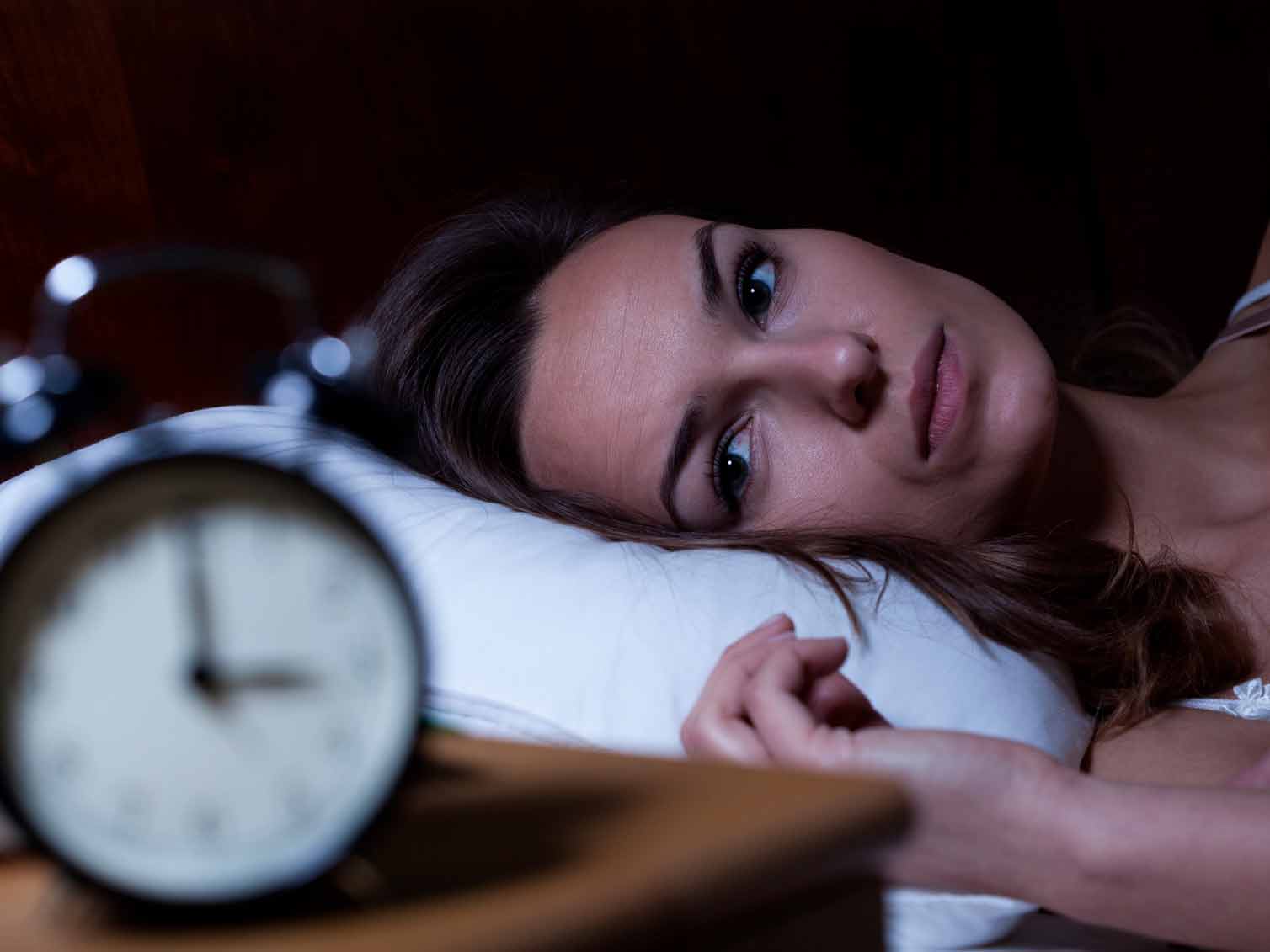If you are having trouble sleeping at night, you are not alone. More than one-quarter of the U.S. population report they occasionally do not get enough sleep, while nearly 10% admit to experiencing chronic insomnia.1 In Canada, of those with sleeping difficulties, approximately 18% get less than five hours of sleep per night.2
For some, lack of sleep could be the symptom of another problem. According to the National Institutes of Health, insomnia is sometimes related to neurological conditions such as Alzheimer’s or Parkinson’s disease, emotional disorders like depression, anxiety or post-traumatic stress syndrome. Other possible causes include arthritis, asthma, headaches, hyperthyroidism, gastrointestinal disorders or menopause.3
For some people, lack of sleep is self-induced. Working long hours, taking care of the kids and increased stress-loads can lead to a restless night. Abuse of recreational drugs or alcohol, or too much caffeine may lead to less time spent in deep sleep at night.
If you find yourself experiencing sleep problems, your chiropractor would like you to pay particularly close attention because this could be detrimental to your health in a number of ways. In a recent article written for Time magazine, Christine Gorman reports that sleep deprivation is responsible for slower reactivity times and poor memory. In fact, after about 20 hours without sleep, reaction times are similar to those with a 0.08 blood- alcohol level, making it significantly more dangerous to operate a motor vehicle.4
Some experts tell us that a lack of sleep may contribute to a greater incidence of all kinds of disease, due to its effects on immunity. According to Dr. Diwakar Balachandran, a sleep specialist from the University of Texas, all-nighters can decrease our body’s ability to fight off colds and flu. Studies conducted in his labs have shown that T-cell counts decrease, and the concentration of inflammatory cytokines increase when a person is sleep deprived, thereby leaving him or her more susceptible to catching a cold or unable to recover from bacterial infections.5
In other studies, sleep deprivation has been linked to obesity. In subjects exposed to two consecutive nights with less than four hours of sleep, hormone levels of leptin and ghrelin were altered. This resulted in a perceptive shift in hunger and a greater likelihood for these people to reach for candy, cookies and cake instead of vegetables, fruit and dairy products.6
How Do You Know You Have a Sleep Problem?
If a lack of sleep is starting to affect your concentration, memory or mood, you may have a sleeping problem. Chances are that it is just a case of nerves, or an inability to deal with life’s stress. But to be on the safe side make sure you have your physician perform tests to see what may be causing your sleeping irregularities. Early detection and correction lead to the greatest odds for recovery. However, most sleep problems are related to other conditions or situations. So, do not look for traditional medical prescription like sleeping pills to solve the problem.
Sleeping cycles, also linked to night/day cycles (circadian rhythms), are known to influence brain chemistry. One substance in particular, melatonin, is a naturally occurring hormone that is secreted during the dark phase of the 24-hour cycle. Taken orally, this substance has been shown to influence sleep patterns and reduce the symptoms related to insomnia.7
Chiropractic Can Improve Your Sleep
If you do not want to have to take pills to improve your sleep, make your next step an appointment with your chiropractor.
In a recent study of 221 chiropractic patients, one third of the subjects who completed the required interview reported immediate effects on their sleep after a chiropractic adjustment. From this group of responders, a whopping 98% recorded improved results with chiropractic versus those whose sleep patterns did not get better.8
Pain, both acute and chronic, is another primary reason why people experience disturbed sleep. Whether it’s back pain, neck pain or headaches, chiropractic treatments have a long history of being able to help.
The vast majority of my patients notice more restful sound sleep after their adjustments. For the few that don’t their are other therapies and suppliments that can be very beneficial. Why suffer from sleepless nights call now for a complimentary consultation.
References and sources:
1. Sleep and Sleep Disorders: A Public Health Challenge – US Department of Health & Human Services – Centers for Disease Control and Prevention. http://www.cdc.gov/sleep/
2. Tjepkema, M. Insomnia-Statistics Canada 2005 (November), Health Reports Vol. 17, No. 1.
3. What causes insomnia? – US Department of Health & Human Services – National Institutes of Health. http://www.nhlbi.nih.gov/ health/dci/Diseases/inso/inso _causes.html
4. Gorman, C. Why we sleep – Time 2004 (Dec. 17). http://www.time.com/time/magazine /article/0,9171,1009765-1,00.html
5. Mann, D. (Dr. Michael W. Smith, reviewer) Can better sleep mean catching fewer colds? Lack of sleep affects your immune system – WebMD.com. http://www.webmd.com/sleepdisorders/excessive-sleepiness– 10/immune-system-lack-of-sleep
6. Yager, J. Don’t overlook health benefits of sleep. Getting enough sleep can improve and lengthen your life – ConsumerAffairs.com 2010 (Aug.) http://www.consumeraffairs.com/ boomerific/2010/020_getting_enough _rest.html#ixzz17G2GOAMU
7. Melatonin. US National Library of Medicine – National Institutes of Health. http://www.nlm.nih.gov/medlineplus/druginfo/natural/940.html
8. Jamison, JR. Insomnia: does chiropractic help? – J Manipulative Physiol Ther. 2005 (Mar-Apr); 28(3): 179-86
